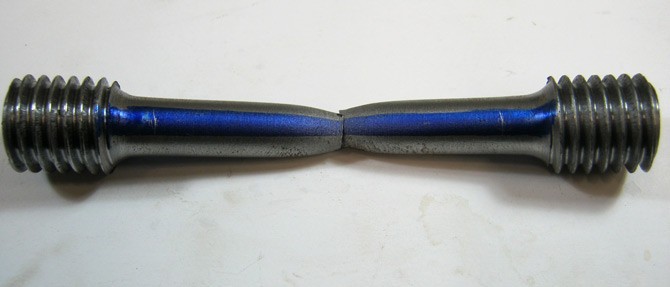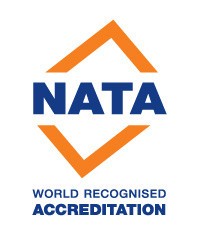VTS can conduct various tests to ensure a material is compliant with its material specification, or to identify and certify an unknown material. Tests ensure that material properties comply to service and specification requirements.
SERVICES INCLUDE:
Tensile Testing
Tensile testing, also known as tension testing is a fundamental materials science test in which a sample is subjected to uniaxial tension until failure. The results from the test are commonly used to select a material for an application, material identification, quality control, material certification and to predict how a material will react under other types of forces.
The test process involves placing the test specimen in the mechanical testing machine and applying tension to it until it fractures. During the application of tension, the elongation of the gauge section is recorded against the applied force. The data is manipulated so that it is not specific to the geometry of the test sample. The elongation measurement is used to calculate the engineering strain.
Other data that is obtainable from the tensile test include yield stress, reduction of area after fracture and elongation.
VTS can perform tensile testing from as high as 100 tons and read accurately to as low as 1 gram-force.
Charpy Impact Testing
The Charpy impact test, also known as the Charpy v-notch test, is a standardised high strain-rate test which determines the amount of energy absorbed by a material during fracture. This absorbed energy is a measure of a given material’s toughness and acts as a tool to study temperature-dependent brittle-ductile transition. This form of mechanical testing is widely applied in the industry.
The Charpy test involves striking a suitable test piece with a striker, mounted at the end of a pendulum. The test piece is fixed in place at both ends and the striker impacts the test piece immediately behind a machined notch.
At the point of impact, the striker has a known amount of kinetic energy. The impact energy is calculated based on the height to which the striker would have risen, if no test specimen was in place, and this compared to the height to which the striker actually rises.
Tough materials absorb a lot of energy, whilst brittle materials tend to absorb very little energy prior to fracture. Toughness tends to decrease as the test temperature decreases.
VTS is able to carry out material certification and charpy impact testing in accordance with Australian, ASTM, ISO and DNV Standards to temperatures as low as -196°c.


